Fellows
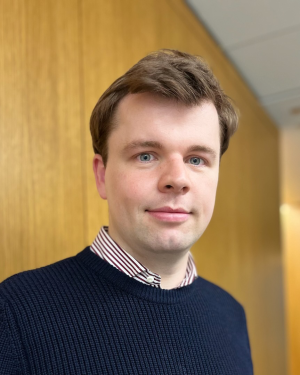
Friedrich Asschenfeldt
Friedrich is a PhD candidate in History at Princeton. His dissertation explores the changing fortunes of the Russian Empire and the Soviet Union as an agricultural producer, from the world’s biggest exporter of grain before World War I to biggest importer of grain during the 1970s. Through the prism of grain trade, it traces the Russian Empire’s and the Soviet Union’s contentious participation in the world economy. Before coming to Princeton, Friedrich studied History and Economics at the University of Munich (BA, MA), the Higher School of Economics in Moscow and Central European University in Budapest.
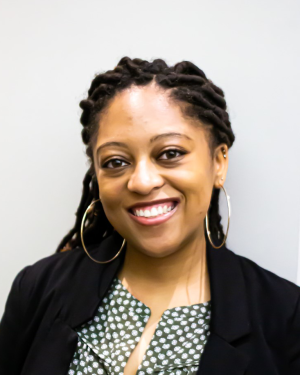
Toni Cross
Toni Cross is a JD candidate at Vanderbilt Law School. She graduated from Middlebury College in 2018 with a BA in International and Global Affairs focused on Russia/Eastern Europe and an Arabic language minor. In 2020, she received an MA in International Security from Georgetown University’s Walsh School of Foreign Service. Toni has completed course work at Nizhny Novgorod Linguistic University, Middlebury at Mills Campus Arabic Summer School, Moscow State University for the Humanities, and Mohammed V University (Rabat, Morocco). Toni’s research interests mainly center around marginalized groups, and she has previously written about disabled people, Volga Tatars, Moroccan Imazighen, Roma, Palestinians, and members of the African diaspora. Toni speaks Russian, Spanish, French, Modern Standard Arabic, Moroccan Arabic, Turkish, Mandarin, and American Sign Language to varying degrees of proficiency. In her spare time, she enjoys crocheting, singing, and playing the piano. She has accepted a post-graduation position with Hogan Lovells LLP in Washington, DC where she hopes to pursue a career in international trade.
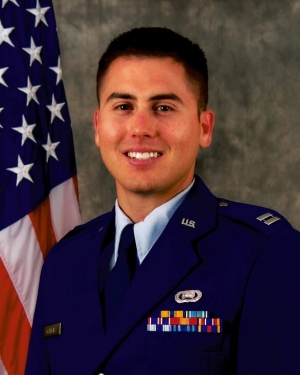
Jordan Garcia
Jordan Bryce Garcia is a US Air Force officer and graduate student at the Naval Postgraduate School, where he is engaged in Security Studies of Eurasia. Jordan’s current research bridges Russian foreign and domestic policy through a qualitative and quantitative analysis of various terminology in Vladimir Putin’s rhetoric. Before attending the Naval Postgraduate School, he completed a Master of Science degree in International Relations at Troy University, and undergraduate studies at the US Air Force Academy and the Georgian American University in Tbilisi. Selected for the Foreign Area Officer program in 2022, Jordan is entering the field of military diplomacy having previously fulfilled overseas assignments in Japan and at the US Embassy in Bangkok, Thailand.
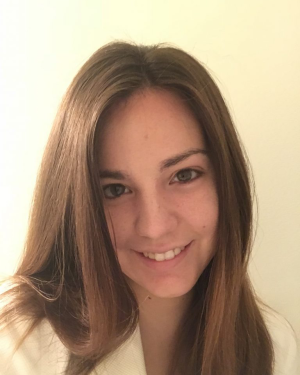
Gabriela Rosa-Hernandez
Gabriela Iveliz Rosa Hernández is a Research Associate at the Arms Control Association. She holds an Erasmus Mundus IntM in Central and East European, Russian and Eurasian Studies from the University of Glasgow and a BA in Sociology from the University of Puerto Rico. She has also studied and lived in Russia, Latvia, Estonia, Poland, Georgia, Kyrgyzstan, Belgium, and other European countries under the auspices of prestigious fellowships. Gabriela’s own research interests center on the Russian military, threat perceptions in the Euro-Atlantic region, and conventional arms control. In addition, Rosa Hernández has offered expert commentary on these issues to news media. Gabriela’s research has been published in the Foreign Policy Research Institute, Real Clear Defense, Trust & Verify, and Arms Control Today among others.
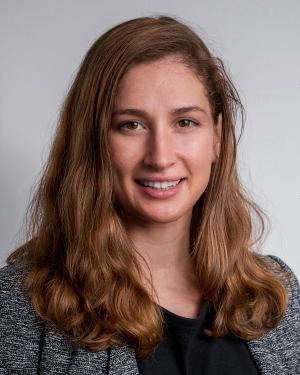
Miriam Hinthorn
Miriam Hinthorn is a PhD student in Security Studies and International Relations and a Walter A. Rosenblith Presidential Fellow at MIT. Her research interests include Russian Foreign policy, crisis escalation, and nuclear strategy and deterrence. Her current research builds on existing theories about status dissatisfaction as a catalyst for conflict through an analysis of Russian foreign policy towards Former Soviet Union Republics (FSUR) from 1991-2022. Previously, Miriam worked as a research specialist at the Brown University Climate Solutions Lab, as well as a Princeton in Asia Fellow in Almaty, Kazakhstan. She holds a BA in political science from Brown University, where she graduated magna cum laude in 2016.
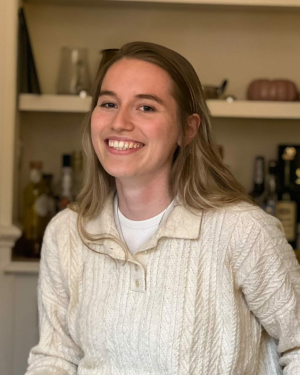
Hanna Hodgetts
Hanna Hodgetts is a first-year MPhil student in Russian and East European Studies at St Antony’s college, Oxford, focusing on autocephaly in Eastern Europe, particularly in Estonia, Ukraine and North Macedonia. She also acts as the Outreach Officer for the Oxford Perspektiva Society, inviting speakers from the Post-Soviet region to the college. Prior to this, she obtained a BA French and Russian from UCL in 2021 and subsequently interned at the Dutch newspaper Trouw, contributing to their coverage of the Post-Soviet region. Thereupon, she interned with IOM in Chisinau, Moldova, supporting the agency’s work on gender-based violence and human trafficking, and volunteered on the Polish-Ukrainian border with the humanitarian aid organization KHARPP.
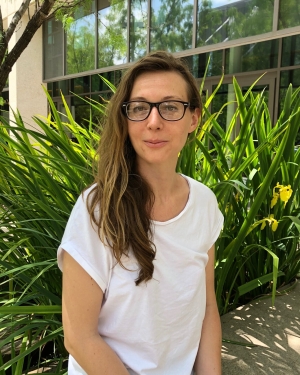
Rebecca Johnston
Rebecca Adeline Johnston is a Postdoctoral Fellow at the Institute of Historical Studies at the University of Texas-Austin. Her research focuses on Soviet cultural history and historical memory in contemporary Russia. Her book project, “The End of Illusion: Putting Culture to Work in the Post-Stalin Era, 1953-1964,” draws on archival materials from Russia, Kazakhstan, and Ukraine to examine changing conceptions and utilizations of culture in Soviet politics and society during the post-Stalin era. In addition to her doctoral research, she has worked extensively as an editor and translator of Russian mass media and within the field of international human rights. At the Robert S. Strauss Center for International Security and Law, she is the project lead on the Post-Soviet States: People, Power, and Assets oral history archive. Her current writing project explores Russia’s weaponization of historical memory in the cultural sphere to conduct disinformation warfare aimed at its domestic population.
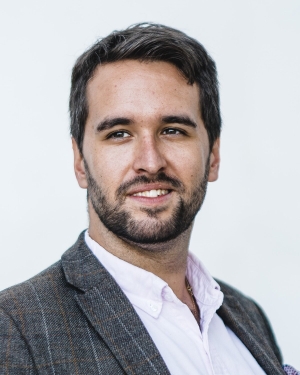
Adam Lenton
Adam Lenton is a PhD candidate in Political Science at George Washington University and incoming Assistant Professor of Politics and International Affairs at Wake Forest University. His research examines nationalism, security, and political development, with a focus on ethnic minorities in Russia and the former Soviet Union. His research has been published in Russian Politics and Problems of Post-Communism, together with articles published by PONARS Eurasia, Riddle.Russia and Russia. Post. He is currently working on a book project which explores the relationship between Russian imperial expansion and contemporary ethnic identities.
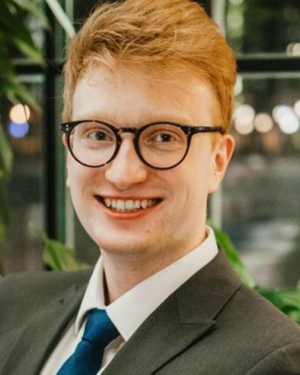
Cameron Manley
After graduating from Oxford University with a degree in French and Russian, Cameron Manley began a brief period working in Moscow as a tutor and freelance journalist, covering Russian and Ukrainian affairs. Cameron began an MPhil in Comparative Literature at Cambridge University in September 2022. His research interests include nationalism in Russian literature as well as Russian religious philosophy and the influence of psychoanalysis on 20th century Russian literature. His thesis examines the Russian demonic with regards to the fictional works of Aleksandr Solzhenitsyn.
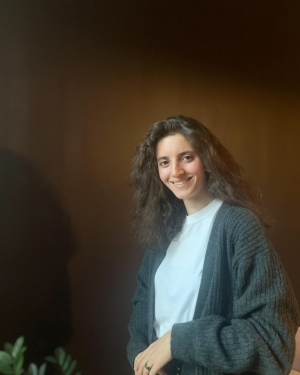
Adrianna Margoeva
Adrianna Margoeva is a graduate student at the European University at Saint Petersburg. She continued her studies of anthropology after graduating from the Russian State University for Humanities. Her research projects were all based on field studies: she studied how the Kists in the Pankisi Valley, Georgia, combined three legal systems (customary adats, sharia, and state law), how the Irani and Tajik communities integrate in the Uzbek society in Samarkand, and how the Buryats in Russia perceive historic and modern Cossakdom with mixed Buddist and Christian background. Besides being a native speaker of Kist and Russian, Adrianna speaks English, Portuguese and basic Turkish.
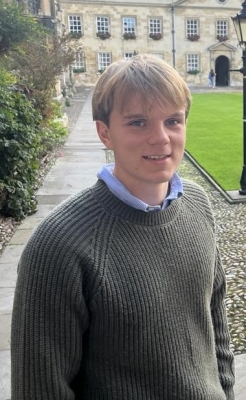
Willem de Mol van Otterloo
Willem studies history at Peterhouse, University of Cambridge. Born to Dutch immigrants, he grew up in London. Before entering University of Cambridge, Willem worked for the Global Diplomacy Lab in the German Foreign Office, and for a history professor in Mannheim, and studied Italian in Rome. Willem is a student of Russian language and literature and Russian history and politics.
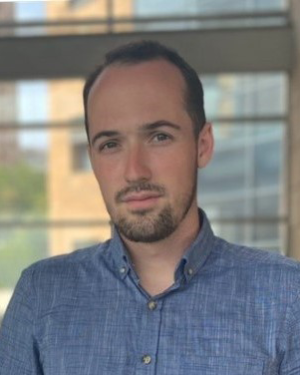
Daniel Shapiro
Daniel Shapiro is a PhD student in Political Science at the University of Pennsylvania, where he studies alliance dynamics and small state strategies in periods of great power conflict, focusing mainly on the former Soviet Union. Daniel attended Brown University as an undergraduate, receiving bachelor’s degrees in Political Science and Slavic Studies in 2018. He then received a master’s degree in Regional Studies: Russia, Eastern Europe and Central Asia from Harvard University in 2020. Daniel has also worked for Harvard Kennedy School’s Russia Matters Project and the European Leadership Network, was a Fellow at the Stanford US-Russia Forum, and lived in Yerevan, Armenia on a Fulbright research grant in 2021. Daniel has published research on U.S.-Russian relations, the Caucasus, and Ukraine, among other subjects, and in addition to his graduate research, he is currently on the executive committee of the Younger Generation Leaders’ Network on Euro-Atlantic Security.
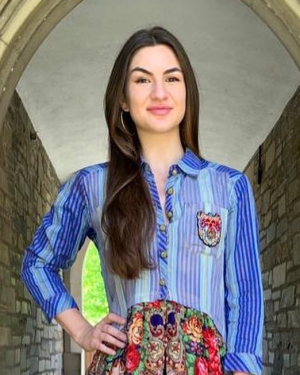
Alika Zangieva
Alika Zangieva is a third-year PhD student in the Department of Near Eastern Studies at Princeton University. Her research areas include Ottoman and modern Middle Eastern history, the Caucasus, Russian and Eurasian history, Islamic studies, Anthropology, empire, and migration. Her dissertation project will trace the genealogy of spiritual praxis and martial prowess among Circassian diaspora communities in Turkey and Jordan, from the late Ottoman period to the present day, combining textual philology and ethnographic fieldwork. Prior to Princeton, Alika worked at the Middle East Institute in Washington, D.C., where she was Associate Editor of its flagship publication, The Middle East Journal. Alika was born in North Ossetia, Russia, and immigrated to the United States as an 8-year-old. She grew up in Wilton, Connecticut, and completed her B.A. in International Affairs at The George Washington University. Her research languages include Turkish, Ottoman Turkish, Arabic, and Russian.
